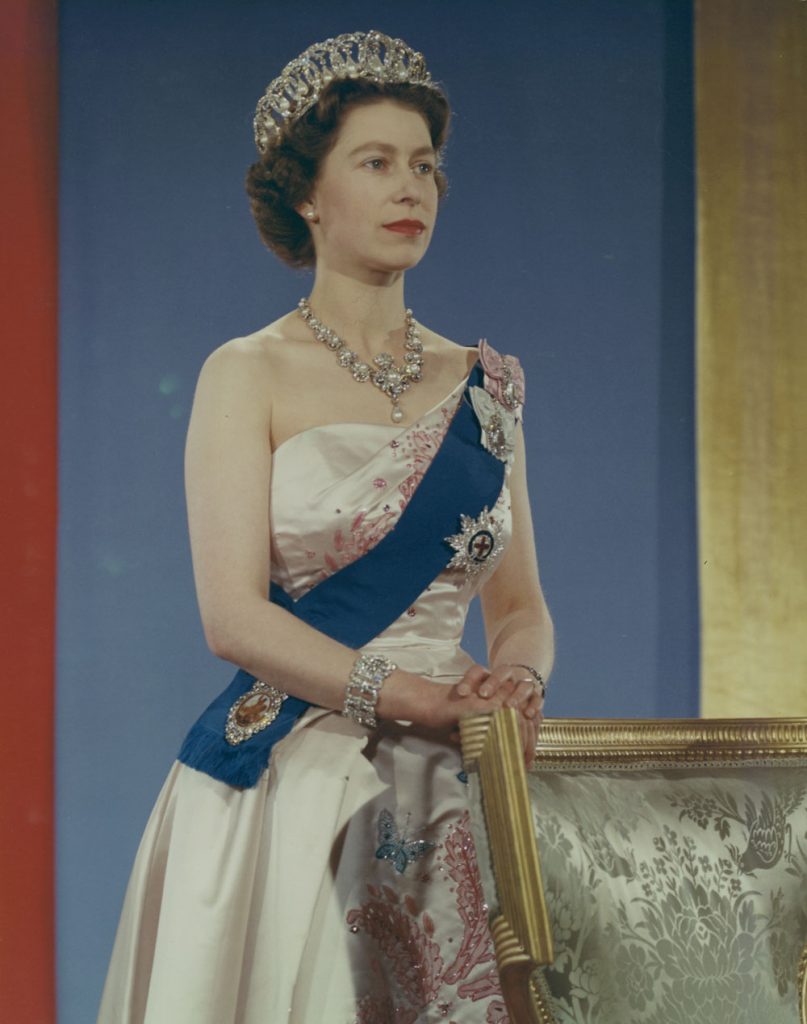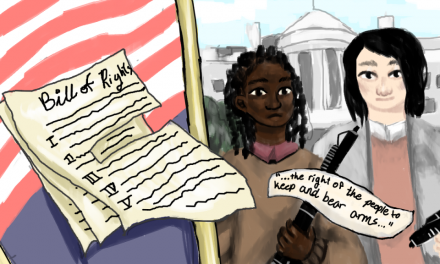
(flickr/BiblioArchives)
Hours before Queen Elizabeth II’s death last week, Buckingham Palace announced that doctors were “concerned” for her health. Reactions on social media were many and varied, but one in particular sparked undue outrage. When Dr. Uju Anya, a professor at Carnegie Mellon University (CMU) (Pa.), tweeted, “I heard the chief monarch of a thieving raping genocidal empire is finally dying. May her pain be excruciating.” The backlash was brutal and immediate.
Twitter eventually removed Anya’s tweet, but not before CMU released a public statement criticizing her, asserting that while “freedom of expression is core to the mission of higher education, the views she shared absolutely did not represent the values of the institution.” Hundreds of users, including Jeff Bezos, executive chairman of Amazon, also responded with anger and revulsion. But at the same time, countless students, faculty and staff, which have accumulated more than 4,300 signatures, outpoured support for the professor. At CMU, however, academic expression appears only to be free as its alignment with the institution’s interests.
By singling Anya out while thousands of users were discussing the queen’s death, CMU sent a clear message: do not criticize the establishment.
According to CMU’s own statement, “freedom of expression must at once be fiercely guarded and genuinely embraced.” But by publicly ostracizing Anya in a brief photo statement, CMU has betrayed its own freedom of expression policy, and sent a dangerous message to Anya’s faculty peers. Instead of embracing the discourse Anya created, CMU propelled the professor into a dangerous and harmful position by condemning her.
In the hours after her tweet went viral, Anya had to shut down the contact section of her website and reported that she had received “hundreds of hateful messages” in response to her tweets. As Anya, a Nigerian-born professor explained, her tweet was crafted with the violence of colonialism perpetrated in Nigeria in mind. Her family suffered under the brutality of British colonialism, justifying her critique of the institution that supported that war. CMU’s response is especially troubling, considering the University’s own reported engagement with anti-colonialism in the University’s Center for Arts. When anticolonial perspectives work for the image of the university, they promote it. But when their faculty directly addresses the rule of an empire which colonized their homeland, CMU chose to aggressively and swiftly condemn them. CMU’s response was unproductive, and instead of encouraging users to critically engage with Anya, they chose to join in on the dog pile, validating the verbal abuse she endured.
CMU and Twitter would have been justified in lashing out had Anya’s tweets threatened to harm anyone, but they didn’t. In fact, Anya was simply pointing out the truth of the monarchy’s egregious actions. As she and much of the world are familiar, the queen was a powerful symbol of the horrifically violent British empire. From state-sanctioned violence during the 1950s Mau Mau rebellion in Kenya, to Ireland’s Bloody Sunday, to the Partition in India, the British murdered thousands across the world to the tune of “God Save The Queen.” Compared to that, Anya’s tweet wasn’t harmful or violent. It was necessary. But for CMU and Twitter, it was simply inconvenient.
Beyond the content of Anya’s tweets, CMU’s condemnation is a frightening example of the restriction of free expression. CMU’s freedom of expression policy limits speech only on the “basis of the law and … to protect the rights of other members of the University community and to ensure the normal functioning of the University.” Her words were an expression of grief and resentment toward an empire that systematically destroyed her people. She has the right to feel outraged and to publicly express her indignation. Her critique should have been an educational opportunity for people to examine the reactions to the queen’s death with nuance, rather than uncritically rush to the monarchy’s defense.
Significant public figures such as Bezos also put pressure on CMU to condemn the professor. Their ties date back to 2008, when Bezos received an honorary doctorate in science and technology from CMU and gave two commencement addresses on campus. Last year, Amazon gave $2 million to CMU to support the Computer Science Academy at the school. But just because Bezos is a significant figure and has ties to CMU doesn’t mean CMU should stop protecting the right to free speech.
Ultimately, CMU’s condemnation of Anya’s language is a menacing signal against free expression on campuses nationwide. Instead of creating discourse where students and faculty could critique Anya’s perspectives on colonial symbolism, the University chose to discredit her. They decided to uphold the most powerful monarchy in the world and use their institutional power to condemn a Nigerian woman expressing her grief over the atrocities the British empire committed against her family.
If they truly respect freedom of expression, CMU should extend an apology to Anya for ostracizing her. To be clear, this doesn’t mean we support her usage of certain derogatory language, but once again promote free expression and not publicly chastising professors and exacerbating the vitriol she was already facing. The University should instead seek to encourage discourse surrounding the monarchy and utilize Anya’s tweet as a starting point. Free speech isn’t just the legal right to say whatever you want — it’s universities’ job to uplift, not deride, such speech when it happens.
CMU should work toward decolonizing their beliefs and think critically about how to engage with professors after online backlash. If they don’t, their reputation as an institution upholding academic freedom will forever be tarnished.
The above editorial represents the majority opinion of the Wheel’s Editorial Board. The Editorial Board is composed of Rachel Broun, Sara Perez and Ben Thomas.
The Editorial Board is the official voice of the Emory Wheel and is editorially separate from the Wheel's board of editors.





